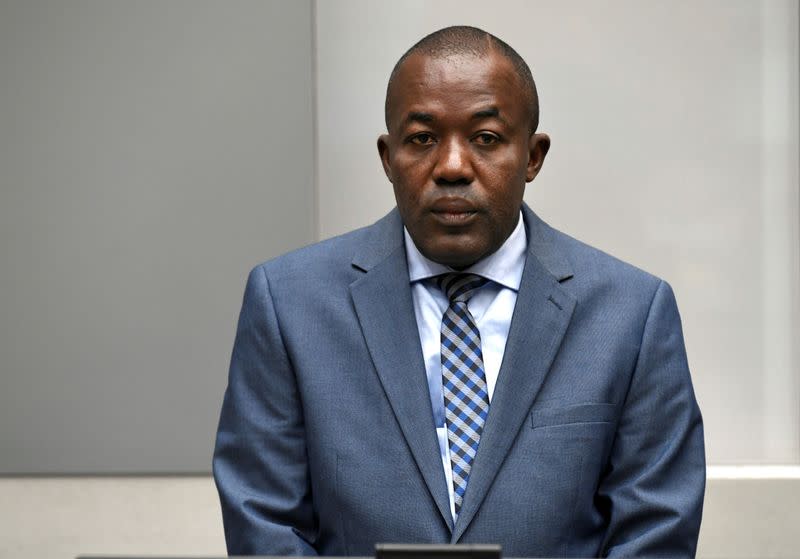By Stephanie van den Berg
The Hague (Reuters) – Two men accused of leading Christian-dominated militias in widespread attacks on Muslims in the Central African Republic (CAR) on Tuesday rejected all charges against them at the start of their trial at the International Criminal Court.
Patrice-Edouard Ngaissona, a former African football executive who, according to prosecutors, was a senior leader of the so-called anti-Balaka militias in 2013 and 2014, and Alfred Yekatom, also known as “Rambo”, pleaded not guilty to charges related to attacks on Muslim civilians.
“I do not recognize myself in the charges against me, I am not guilty,” said Ngaissona, 53.
The former Sports Minister was accused of war crimes and crimes against humanity, including murder, rape, persecution and torture.
Prosecutors said Ngaissona was an integral part of the anti-Balaka movement.
“He knew that the group that was helping to arm, finance, instruct and organize, known in September 2013 as the anti-Balaka, would inevitably target the civilian Muslim population of western CAR. He knew revenge within them,” said the prosecutor Kweku Vanderpuye The court.
Yekatom, 46, faces charges similar to Ngaissona, along with others for his alleged use of child soldiers.
The Central African Republic has been mired in violence since a coalition of predominantly northern rebels and Muslims known as “Seleka”, or “alliance” in the Sango language, took power in March 2013. Its brutal government gave rise to anti – Christian militias from Balaka.
Prosecutors showed messages from Facebook pages and groups of chat messages created by anti-Balaka groups talking about “sacrificing” Muslims and saying they “will disappear soon”.
After initial criticism that its investigation into the CAR was unilateral, with only anti-Balaka leaders on the dock, the ICC in January announced that it had arrested the alleged Seleka leader, Mahamat Said Abdel Kain.
The trial begins in a scenario of fighting between the CAR army, supported by the United Nations, Russian and Rwandan troops, and rebels from both militia groups who formed an alliance with the aim of taking the capital and canceling a vote on 27 December. December, in which President Faustin-Archange Touadera was declared the winner.
(Reporting by Stephanie van den Berg, edited by Ed Osmond)
